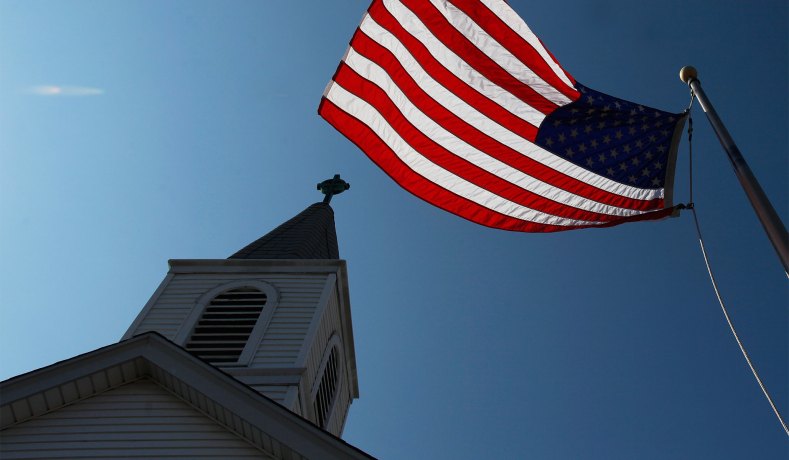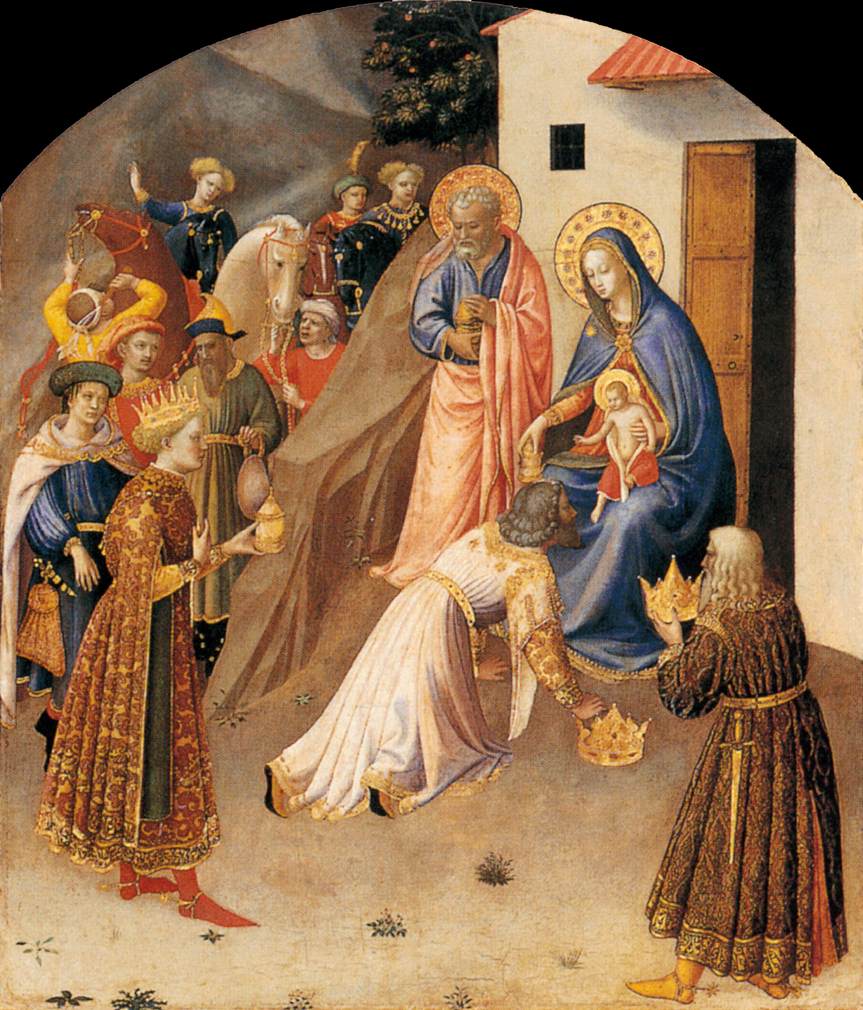Bethlehem Lutheran & Bethel Lutheran Church, Lebanon & Sweet Home, OR
Third Sunday after the Epiphany + January 27, 2019
Text: Matthew 8:1-13
Throughout the Epiphany season, our Lord reveals who He is and what He’s come for. So far, we’ve heard the proclamation of who He is—as a child, at the Jordan, and at the wedding at Cana. Yet we’ve seen very little of how His arrival is received.
Today we see how the Lord is to be received in two glorious miracles. First, a leper approaches Jesus, kneeling before Him and says, “Lord, if you will, you can make me clean.” From this brief encounter, we learn how we also ought to approach the Lord with our requests in prayer. The leper, recognizing that Jesus is the Almighty Lord, approaches with confidence that Jesus will hear his request and has all power to grant it. But this man also submits himself to God’s will in humility—“if you will, you can make me clean.” He leaves the answer in the Lord’s hands. He acknowledges that God’s will is always good, even if that meant staying in his painful and grotesque condition.
The Lord immediately answers the man’s prayer: “I will; be clean.” And with a Word from the One through Whom all creation was formed, the leper is restored. His flesh, like Naaman the Syrian, is “like the flesh of a little child.”[1] All of this was in answer to a simple, trusting prayer to the Lord.
In the second miracle, we learn even more about what this trust is, which is the root of effective prayer. The faith of the Gentile centurion is such a shining example, that Jesus actually marvels at hearing it. This faith, which Jesus praises so highly, isn’t something reserved for a select few figures in the pages of the Bible. It is a faith which He desires to give each of us: it is the faith which receives God’s abundant blessing and in the end, eternal life.
This Spirit-work faith has three parts to it—knowledge, affirmation, and trust. These two men had come to know that Jesus was in the area, and the had probably heard reports about what He had done. This is simply knowledge about Jesus. Today, people would have a historical faith, acknowledging that Jesus was a historic figure, an important figure.
The next part of faith is affirmation. These men knew that Jesus had a reputation for healings. Affirming that knowledge of Jesus’ reputation, they went to find out more. This is often where people are when they come to church for the first time. They’ve heard some vague and spotty reports about Christianity, they’ve known Christians to be kind people. So, acting on that, they give up a Sunday morning, maybe miss the first part of the Pro Bowl. They’re willing to affirm that Christians don’t have a disease and aren’t going to try to make them drink the Kool Aid.
But that brings us to the last part of faith: Trust. This is where the leper and the centurion put it on the line: “If you will, you can make me clean.” “I am not worthy…but only say the word, and my servant will be healed.” In the case of the leper, he staked his life and future in the community on what Jesus was able to do. For the Centurion, his servant’s life hung in the balance.
This trust is the thing which only the Holy Spirit can work in men’s hearts. None of us come to God with a true fear, love, or trust. The Spirit works faith when and where it pleases God in those who hear the Gospel.[2] And that remains a mystery to us, humanly speaking. The same Word is preached from the pulpit, taught in confirmation class, and it touches the hearts of some, but others it just rolls off like water on a duck’s back.
But still the Word is true, and the Word is powerful. It’s the Word of God to which faith clings. We’ve already seen how the centurion didn’t shrink away because of his sinfulness, but neither did he look to the good he’d done as reason for Jesus to answer his request. The centurion threw himself on Jesus’ Word—“only say the word, and my servant will be healed. 9 For I too am a man under authority, with soldiers under me. And I say to one, ‘Go,’ and he goes, and to another, ‘Come,’ and he comes, and to my servant, ‘Do this,’ and he does it.” This is what it means for man to “live by every word that comes from the mouth of God.”[3] This is what faith lives on.
In the centurion’s confession, he is saying that he believes that Jesus is the one who can help his paralyzed servant. Perhaps more people today would believe this if there weren’t such advanced medicine, which makes extravagant promises about itself. The centurion sees that Jesus is the Almighty Lord, “who kills and makes alive, who wounds and who heals.”[4] And just as he has a hundred soldiers under him who immediately obey his commands, he sees that Jesus has heaven and earth, life and death, at His command.
Likewise, the leper’s faith is bold enough to come to Jesus with a great request: “Lord, if you will, you can make me clean.” This man, a Jew (because he was sent to the priest), would have known that only God had the power to grant this request—Miriam was turned leprous by the Lord, Naaman’s servant Gehazi was also turned leprous, but believing Naaman was cleansed.[5] Yet, he would have believed, even if it hadn’t been His will to cleanse Him.
That’s another part of this faithful trust that’s beyond our human power. If faith were just a matter of willpower, it would stand to reason that at a certain point, affliction and attack would break someone’s faith. After all, it so often breaks marriages and other trust relationships between people. This was Satan’s argument about Job: “Does Job fear God for no reason? 10 Have you not put a hedge around him and his house and all that he has, on every side? You have blessed the work of his hands, and his possessions have increased in the land. 11 But stretch out your hand and touch all that he has, and he will curse you to your face.” (Job 1:9-11)
So, the Lord allowed Job’s faith to be tested. In spite of circumstance, in spite of sinful weakness, Job’s faith held firm: “Though he slay me, I will hope in him” and as he sits in dust and his flesh covered in scabs, he says, “I know that my Redeemer lives, and at the last he will stand upon the earth. And after my skin has been thus destroyed, yet in my flesh I shall see God, whom I shall see for myself, and my eyes shall behold, and not another. My heart faints within me!” (Job 13:15, 19:25-27) That’s no human willpower, no naïve platitudes, that is the power of God which binds almighty God to His people.
This is why we should never say that what a person endures is harmful to their faith, whether long-standing illness, danger, or personal strife. The power to destroy faith doesn’t lie in something external to us—The Good Shepherd knows His own and no one can snatch them out of His hand. (John 10:14, 28-29) What endangers our faith is our own unbelief, blaspheming and sending away the very Holy Spirit by Whom a person is sealed for salvation. Faith is weakened when we drift from His Word and the gathering of the saints in worship. Faith is undermined when we make our trials and troubles greater than the Almighty God who has redeemed us. Faith is destroyed when we deny the Almighty God who has made Himself known and comes to us in fact through His Word and Sacraments.
But how do you know you have faith? When, in spite of all that is happening, or has happened to you, you don’t look to yourself or man for help. When you are at the end of your rope, you look to God and say, “Lord, If you are willing, you can change this…only say the Word and it will be.” Maybe you’re there, or you’ve been there in the past. Maybe you’re not there yet. God grant each of you such a genuine faith which gives up on yourself and completely trusts Him.
In a joyous outcome, the
man of faith receives what he asked for, “’Go;
let it be done for you as you have believed.’
Those who have this genuine and saving faith are blessed. The Psalmist David sings, “Blessed is the man who makes the Lord his trust, who does not turn to the
proud, to those who go astray after a lie!”[6] Blessed is the one who has this faith, not
because everything in his life will be immediately fixed—all illnesses healed,
all debts paid, all broken relationships mended. The blessing of this faith is union with an
almighty and gracious God in heaven.
When suffering comes, it means knowing for certain that God is not out
to get you. Rather, “God is treating you as sons” and “He has sent the Spirit of his Son into our hearts, crying, ‘Abba!
Father!’”[7] And one with this faith is blessed because,
though he deserves temporal death and
eternal punishment, he also believes that God has made peace with him
through the blood of our Lord Jesus Christ.
Amen.
[1] 2 Kings 5:14
[2] Augsburg Confession, Article V “On the Office of the Ministry”
[3] Deuteronomy 8:3
[4] Deuteronomy 32:39
[5] Numbers 12:1-10; 2 Kings 5:13-27
[6] Psalm 40:4
[7] Hebrews 12:7 ; Galatians 4:6







